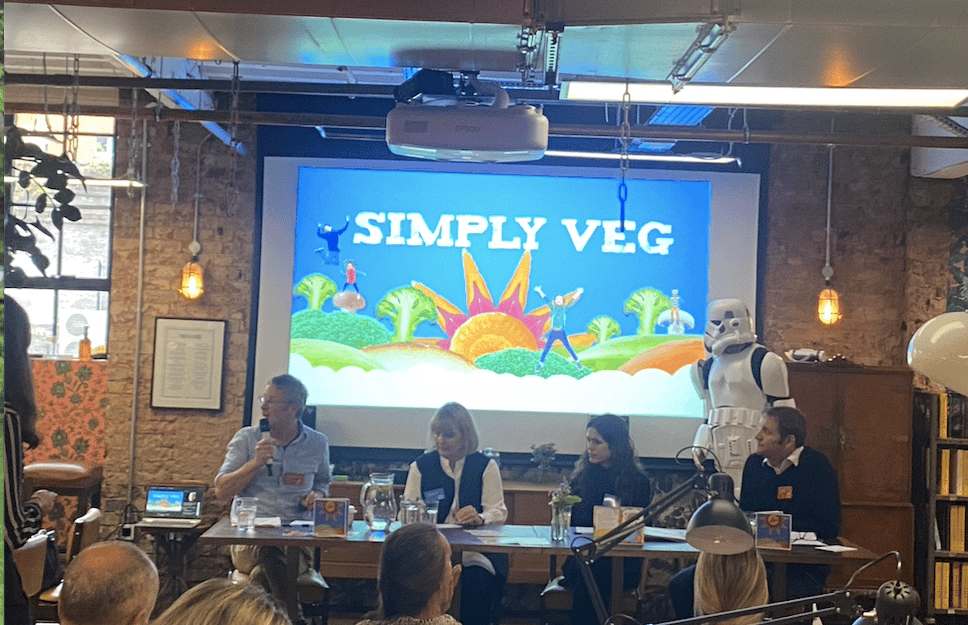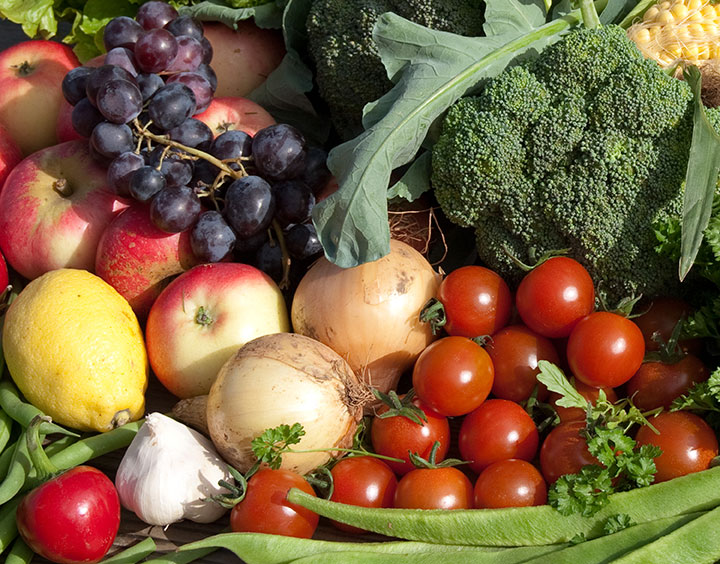Brits are eating fewer vegetables due to the cost-of-living crisis in a concerning trend that is replicating the 2008 financial crisis.
Vegetable sales are down by nine per cent compared to last year according to supermarket data, matching a new survey by YouGov, in which 26 per cent of participants said they had bought fewer fresh vegetables due to financial pressures.
“Vegetables are increasingly being seen as an unaffordable luxury and we are seeing signs of a worrying decline in sales,” said executive director of the food poverty campaign group The Food Foundation, Anna Taylor.
This follows the same pattern as the financial crash of 2008 where fresh vegetable consumption fell by 7.8 per cent according to the Institute of Fiscal Studies. Campaigners are worried that, like in the previous crisis, the effects on public health and eating patterns will be felt for years to come.
“Our worry is that these new shopping patterns will become a habit that stays after the cost-of-living crisis has eased and will ultimately have a negative impact on the health of our nation,” said chief executive of Veg Power, an alliance in the food sector to encourage children’s fruit and vegetable consumption, Dan Parker.
“Food prices are going up,” said project manager at The Food Foundation, Rebecca Tobi. “This is the 13th consecutive month [food prices have] gone up. It’s the only part of the budget that you can squeeze. People are making difficult decisions.”
“When people need to make sacrifices, people are inclined to sacrifice veg,” Parker added.
In response, a new campaign is aiming to unite experts from supermarkets to chefs to help people and families eat more veg on a budget.
Hugh Fearnley-Whittingstall, Bee Wilson and Tom Hunt are among the chefs, nutritionists and child psychologists who will be answering questions directly from parents and carers via the Simply Veg campaign website, with a £50 prize for each question that is chosen.

“The challenge isn’t just that households can’t feed themselves well, but the problem is the message that eating healthily is expensive. We have to reframe that debate,” said ex-director of Sainsbury’s, Judith Batchelar, speaking at a launch event for the campaign at Jamie Oliver HQ.
“We can see the double challenge. It’s not only feeding veg to kids but feeding veg to kids on a budget,” said Fearnley-Whittingstall. “We need an extra rung of support for carers and families that are preparing veg.
“It’s worth reiterating the size of the prize – the extraordinary transformative impact that the success of this project would have,” added Fearnley-Whittingstall on what higher fruit and veg consumption could do for the nation’s health, education and environment.
One of the issues, along with the perceived expense of buying veg, appears to be the energy costs needed in preparing it said director of food aid charity, Food in Community, Chantelle Norton in May: “[Food bank] users are increasingly requesting foods which require minimal cooking due to high fuel costs.”
Chief executive of Veg Power, Dan Parker, said: “With Simply Veg we’re trying to make it as easy as possible for parents and carers to navigate their way through the cost-of-living crisis by embracing veg and pulses.
“The message that comes back to us from parents is simplicity is everything.
“We have recruited an amazing team of experts who have an incredible wealth of knowledge; chefs, nutritionists, gardeners, child psychologists. We’re going to challenge parents to ask questions and our experts to give simple answers,” he said.
More on the cost-of-living crisis















It is quite scary, I can see myself doing this from time to time, even though I’m not bad off. Maybe only buying one type of veg on a week night because I’m not sure I need/will eat the second in time just because of the cost increase. It all feels subliminal when you’re making these decisions but the price increases are definitely driving it.
I’m sorry, but the price of veg argument is nonsense. A 1kg bag of carrots from Sainsbury is 47p! An enormous swede is 57p! Etc. Yes, out of season, exotic things shipped in from far away, and much organic produce, can be expensive, but can also be avoided or bought judiciously. Last night I made a filling chicken curry full of organic carrots and cauliflower, served on brown rice, for less than £2 per large man-sized bowl. I think some of the real problems are that many people still aren’t used to using veg as the main filler of meals, don’t know how to think outside the box and throw whatever they have into many dishes they don’t usually put veg into, and end up throwing out lots of veg because they haven’t used it – showing them it’s an unnecessary waste they can cut. But beyond this are huge problems of stress and the impact of many current issues having a negative impact on mental health. Planning meals, finding recipes that sound easy yet yummy, coming up with grocery shopping lists, taking time to prepare meals – all those things save money as opposed to buying ready meals or takeaways, yet are a huge mental drain when your tank is already depleted from all the other worries and stresses of life. What people need are nice, inspirational, real people showing them how to do this with very easy, quick, non-stressful examples…lots of them! And again I’m sorry but the likes of Hugh Fearnley-Whittingstall with his very fussy recipes with odd ingredients most don’t normally buy that take ages to prepare are the wrong leaders for this type of thing, at least for us regular folk.
I agree with SusanD that vegetables bought in season are not too expensive, and that lack of culinary skills goes a long way to sending folk off to buy takeaways or ready meals. I consider that I was lucky enough to go to school when cookery was taught as a real subject; it was that which gave me the confidence to cook, and that which is lacking in a lot of people. Add to that the constraints of time. But can lack of time be an excuse? When I worked full time I used to prepare as much as I could for the week ahead on a Sunday. Cooking for the week ahead needs a plan and this also came into cookery lessons at school. The sooner we bring back proper cookery lessons into school , the better! But as Susan says – we need someone to teach those whose cookery lessons at school were non-existent, and the menus need to be easy and fuss free, as well as seasonal. Who really needs beans from Kenya, asparagus from Peru, or strawberries at Christmas? Economical dishes often rely on good seasoning, whether they be vegetable or meat based, and this is quite difficult for some folk to achieve.
I have just taken apart a 1984 cookery book and saved recipes which use the above criteria, and noted that there are similar recipes, ie meat loaves and vegetable stews, which differ only in the seasoning and quantity of some ingredient or other to achieve a different taste. Someone really has to have the enthusiasm to become an experimental cook! How do you inspire them without asking them to purchase expensive and unusual ingredients? And without the last minute splodge of olive oil. The judicious use of canned and frozen vegetables to start people off on a main meal would be a beginning. Some of the Eat Well for Less programmes seem to inspire people to take to the kitchen.
I’d love to teach cookery in a school, but sadly am too old now, and would hate to have to cope with reluctant pupils – it must be so soul destroying to have to teach a subject you really love to those who couldn’t care less.
It is difficult not to despair!